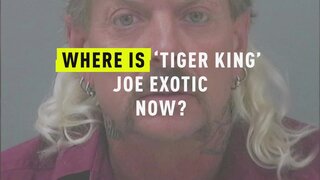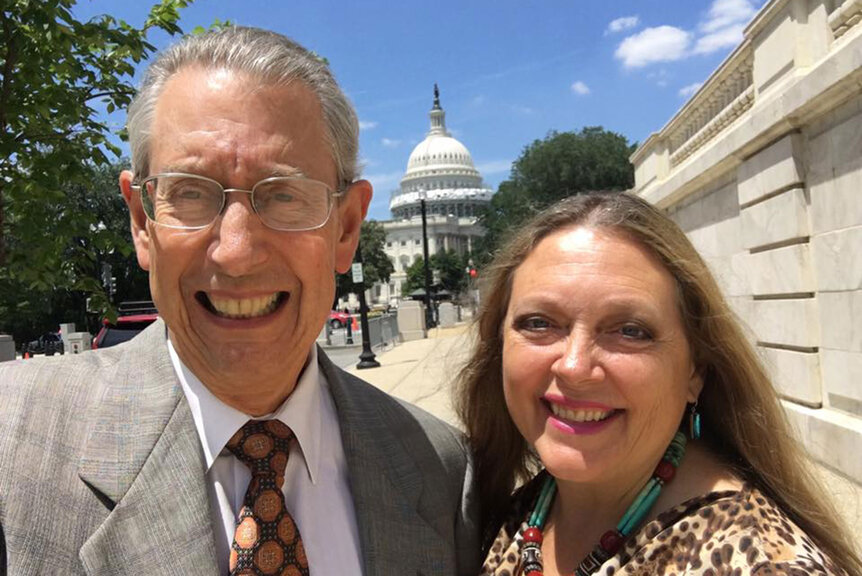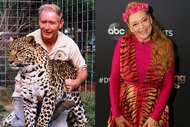Glenn Close, Joaquin Phoenix, and Rooney Mara Now Pushing For Carole Baskin's Big Cat Safety Act To Pass
Carole Baskin, made famous by "Tiger King," told Oxygen she is "so pleased to see so many celebrities throwing their collective clout behind passage of the Big Cat Public Safety Act."

Multiple celebrities have now showed their support for a big cat bill created by Carole Baskin, Joe Exotic’s mortal enemy in Netflix’s “Tiger King: Murder, Mayhem and Madness.”
Baskin — founder of the Big Cat Rescue, an animal sanctuary in Florida — told Oxygen.com in March that her number one goal is to get the Big Cat Public Safety Act passed. The federal bill would ban cub-handling and phase out private possession so that big cat owners can't buy or breed additional cats.
Following the wild success of “Tiger King,” numerous celebrities have joined Baskin in her big cat cause. Joaquin Phoenix, Rooney Mara, Edie Falco, Iggy Pop, Kim Basinger, Ruby Rose, Glenn Close, and Anjelica Huston are among some of the notable people who have publicly expressed their support, according to the Animal Legal Defense Fund.
"I am so pleased to see so many celebrities throwing their collective clout behind passage of the Big Cat Public Safety Act," Baskin told Oxygen.com Thursday. "All of the work since 1998, to curb the captive breeding of big cats and unregulated private possession of them, has finally reached the momentum necessary to cross the finish line."
The Animal Legal Defense Fund is working with “Blackfish” director Gabriela Cowperthwaite and celebrities in an effort to push Congress to pass the federal bill. “Blackfish” is a 2013 documentary which shone a light on the mistreatment of killer whales at Sea World. As a result, the park has since made policy changes. “Blackfish” was exactly the kind of content that Baskin thought “Tiger King” was going to be, her husband, Howard Baskin, said in a scathing video following the docuseries' release.
While the docuseries wasn’t like “Blackfish” at all, Cowperthwaite hopes that its success can lead to changes, as was the case with her own creation.
“Documentaries can be powerful forces for change, sometimes through a call to action and other times simply by telling a story that entertains, creating a window into a world viewers weren’t previously aware of,” Cowperthwaite said in a statement, according to Variety. “But at some point, there is a pivot and the passion of their millions of viewers lands somewhere useful. ‘Tiger King’ and its audience can do that now. The world of big cat captivity requires a call to action.”
The open letter to Congress explains how big cats could face mistreatment under private ownership. It also states that tiger breeding operations cruelly separate babies from their moms for financial gain.
“Because cubs can only be ‘handled’ for a few months, drugging tigers to be compliant and docile is commonplace,” the letter states. “When they get too old and their existence is no longer profitable, they are often irresponsibly sold into the pet trade or killed. Tigers and other big cats are apex predators who have complex physical and psychological needs and desires. Depriving them of expressing their natural instincts is inhumane.”
Several privately owned big cat operations, as well as their eccentric owners, were featured in “Tiger King,” including Doc Antle’s operation. While it touched a bit on animal abuse, it mostly focused on the dramatic fall of Exotic. Exotic, who used to run a private zoo in Oklahoma, is currently serving 22 years for animal abuse and for trying to get Baskin killed.
He claims he was wrongfully convicted.

























